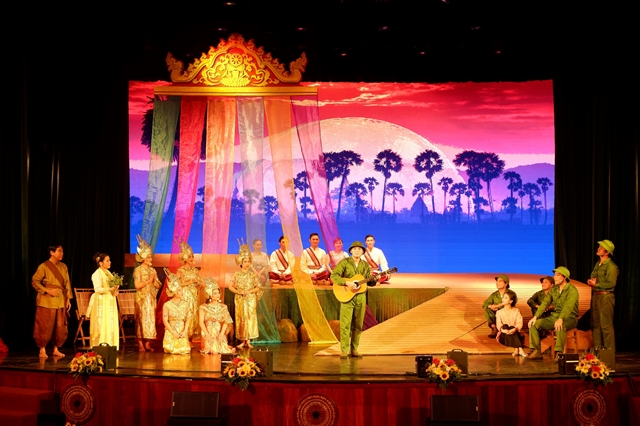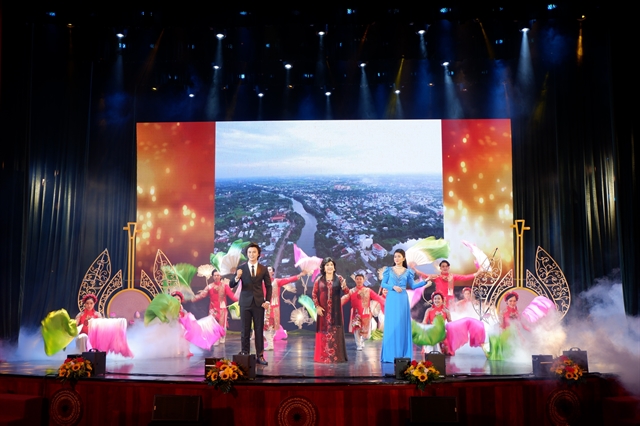 Life & Style
Life & Style

Around 1,000 cải lương (reformed opera) performers across the country have participated in the National Cải Lương Festival, which opened in Long An Province’s Tân An City on Saturday night (Nov 5).

|
| SOUTHERN CULTURE - The Long An Cải Lương Art Troupe presents the play Bên Dòng Long Khốt (Along the Long Khốt River) at the opening ceremony of the National Cải Lương Festival held in Long An Province from November 5-20. VNA/VNS Photo Đức Hạnh |
LONG AN – Around 1,000 cải lương (reformed opera) performers across the country have participated in the National Cải Lương Festival, which opened in Long An Province’s Tân An City on Saturday night (November 5).
The event is organised by the Performing Arts Department under the Ministry of Culture, Sports and Tourism, and the provincial People’s Committee to celebrate the art form originating from the South over 100 years ago.
Addressing the opening ceremony, Deputy Minister Tạ Quang Đông stressed that the festival was expected to encourage people to preserve and promote cải lương.
The festival has attracted 22 state-owned and private art troupes such as the Hà Nội Cải Lương Theatre, the Trần Hữu Trang Cải Lương Theatre, the Sen Việt Stage of HCM City, the Cao Văn Lầu Theatre of Bạc Liêu Province, and the Long An Cải Lương Art Troupe.
The theatres have presented 27 cải lương plays depicting different topics such as love, patriotism, social issues, and the country’s history, culture and development achievements.
Highlighted plays include Câu Hò Đất Mẹ (Homeland) and Ngược Gió (Against the Wind) by the Trần Hữu Trang Theatre, Thái Sư Trần Thủ Độ (General Trần Thủ Độ) and Làm Vua (The King) by the Cao Văn Lầu Theatre, and Bên Dòng Long Khốt (Along the Long Khốt River) by the Long An Troupe.
The organisers will award golden, silver and bronze medals for the best plays and performers.
They will also grant prizes for best director, playwright, choreographer, music composer and designer.
The awards ceremony will be held on November 20.
All the plays will be broadcast on the Việt Nam Cable Television’s channel after the festival ends. — VNS

|
| People's Artist Lệ Thuỷ (M) and young actor Võ Minh Lâm and actress Diệu Hiền perform at the opening ceremony on November 5. VNA/VNS Photo Đức Hạnh |